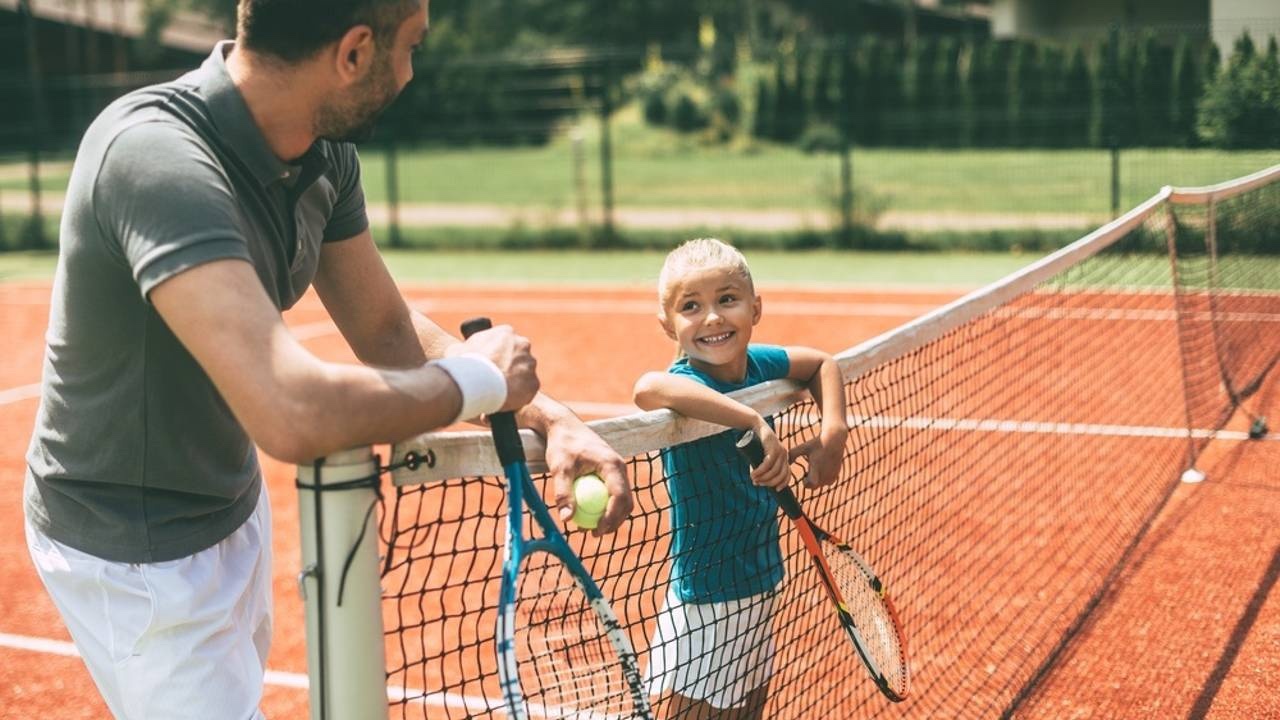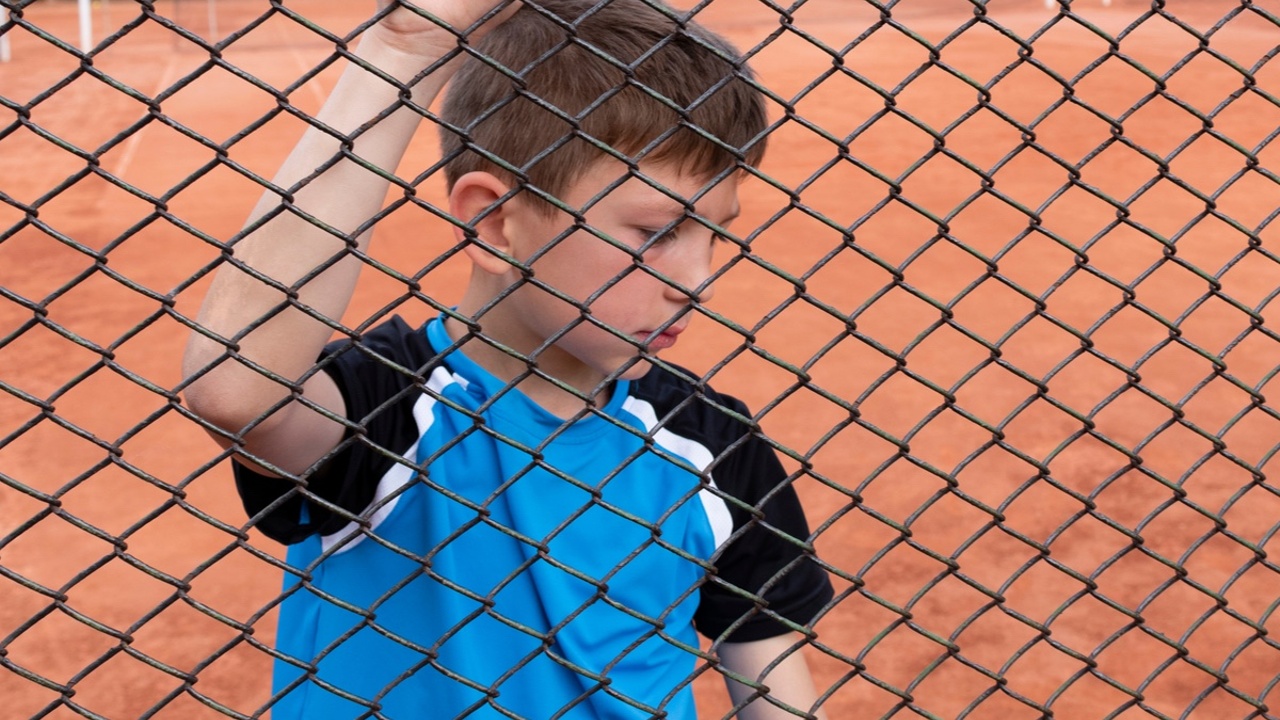WELCOME TO OUR FREE ARTICLES, VIDEOS, AND RESOURCES
Would you like us to send our best free tips, tools, and special offers straight to your inbox?
My Reflections After Naomi Osaka's French Open Withdrawal...

With Naomi Osaka's recent withdrawal from the French Open, I've been reflecting more than usual on the development on mental health through tennis participation.
With all of our mental health experience being a result of a complex interplay between our in born traits, developmental experiences, and current circumstances, I would like to focus on one element of these important contributors to mental health outcomes of tennis players.
And that is the ability of parents to successfully and consistently communicate what is called 'unconditional positive regard', throughout children's development in tennis.
Having been a sport psychologist for 15 years, I have supported hundreds of players during periods of mental health struggles.
And while any player can develop serious mental health issues (reliable research suggests 50% of us experience suicidal thoughts at some point during our lives), due to a perfect storm of factors associated with tennis parenting that make parent-child...
The Most Common Obstacle to Successful Tennis Parenting Communications

For most parents, watching children compete in tennis is an extremely emotional experience.
But while all parents can experience significant challenges, some face increased vulnerabilities.
The Biggest Obstacle...
Susceptibility to tennis parenting challenges above and beyond the normal emotional challenges is most linked to a parent’s own learning history in performance domains.
Just like parents powerfully influence their own children’s development through tennis, every parent has a lifetime of experiences that have invisibly contributed to their own development.
These past experiences shape how parents perceive their child’s tennis.
For Example...
If a parent’s own parents communicated disapproval or conditional love to him in performance domains when he was a child, the sense of disapproval that he felt then will likely later be evoked when he watches his own child perform poorly in tennis.
Through this process (sometimes called transference), this parent will
...What Parents Can Learn From Federer's Mental Attributes...
What an incredibly sad day for tennis.
How good one last slam run would have been. But alas its not to be…
With Roger Federer’s retirement announcement it got me reflecting on his greatest career mental traits.
And from there I actually found myself thinking about what tennis parents can learn from this…As parents of course are the greatest influences on whether we might be blessed enough to see another Federer like person and player in the future…
First, I believe he has 3 mental traits that stand out:
1.) Resilience
If 2 statistics characterise Federer's resilience, it is these…
i.) He came back from 2 sets down 10 times, and all-time record and more than Rafa and Novak combined.
ii.) And he never retired from a match that he started. When we consider the amount of niggling injuries he played with, and that Rafa and Novak have retired from matches about a combined 20 times, this is an amazing achievement.
2.) Performing his Best Under Pressure
Federer was clutch...b...
The 4 Crucial Elements to Successfully Supporting Tennis Parents...

A great passion of mine throughout my career as a sport psychologist has been supporting parents on the tennis parenting journey.
I quickly formed the opinion early in my career that tennis parents in the organisations that I worked were having more influence on player mental toughness outcomes than coaches.
I also learned that National Organisations, the bodies that should be prioritised supporting parents throughout the tennis parenting journey, do a terrible job in this area.
This contributes to i.) consistent parent and coach overwhelm and helplessness, and ii.) poor competitive habits and common issues with well-being for players.
And while coaches generally do their best to support tennis parents in this challenging role, we typically miss some vital elements in successfully assisting parents...
Why do efforts to support parents often fail?
The reason that efforts to support tennis parents often aren't adequate is that those looking to help simply give parents guide...
Set Expectations LOWER to Improve Mental Toughness...
Invest 5min of your day right now in watching this video if you want to become a better coach, tennis parent, or player....
Anthony
Encouraging Players to Control Emotions Not Working...Try This Instead
If your efforts to help your players control emotions haven’t helped them compete better, you’re not alone!
Instead of trying to reduce the intensity of difficult nerves and frustration when they show up during matches, here’s an alternative 3 step approach that you can advise your players to use…
In the video, I’ll also explain why this approach is helpful. And if you’d like a copy of the activity instructions to go here: https://www.mentallytoughtennis.com/notice-look-activity-signup
Maria Sharapova's Defining Glory: The 2014 French Open
##This was an article I wrote in 2014 summarising Maria Sharapova's incredible mental toughness...
How fitting!
It would not have been quite right had Maria Sharapova completed one of the all-time great grand slam title runs in any other way.
A mighty struggle of over 3 hours; faced with the adversity of double faults at key times throughout the match; seeing the 2nd set slip from her grasp when so close to victory; but ultimately decided, like so often throughout her magnificent career, by her ability to respond to the adversities characteristic of 3-set encounters just a little better than her brave opponent.
Sharapova’s Remarkable Career 3-set Record...
Think of any quality associated with mental toughness and Maria Sharapova ticks the box:
Competes effectively when behind;
Competes effectively when not playing her best;
Competes effectively under pressure;
Competes effectively when in front;
Competes effectively through adversity.
In total, Sharapova’s career sp...
Short Term vs Long Term Gains

Traditionally the field of Sport Psychology has recommended strategies like controlling difficult emotions to feel better- because we know when we feel better it’s easier to commit to helpful actions.
Similarly, the recommended goal to do with anxious, angry, or outcome thoughts has been to avoid or reduce them.
When done successfully this helps players in the short term.... but there are 2 problems with this approach that tend to lead to big problems in the long term.
1.) Because the thoughts and feelings that show up during competition are based on the situation and our history within similar circumstances (including human evolutionary history), these strategies are very hard to do effectively when players most want them to work.
2.) In the long term players become less ‘fit’ in being able to tolerate internal difficulties, and more reliant on having to feel good to play good. This in turn tends to lead to players experiencing more difficult thoughts and feelings during...
The Most Important Reflection Question to Ask Before Matches
If players' want to fulfil their potential, there is one question that is the most important of all for them to reflect on before they play matches.
And that is what this week's 'Mental Toughness Made Simple' video is about...
I hope you find it helpful :-)
Nick Saviano's Poor Mental Toughness Advice
Recently I read Nick Saviano’s book ‘Maximum Tennis’ which had lots of great tips in it but in the book when he told the story of losing after having 3 match points during his 1st ever Wimbledon performance he gave some poor advice regarding what we should try to do when it comes to thinking about possible match outcomes during matches.
The advice Nick gives is among the most common ways I see coaches and parents accidentally hinder player mental toughness development.
You can check out the advice and what I think we should do instead in my latest ‘Mental Toughness Made Simple’ video.
